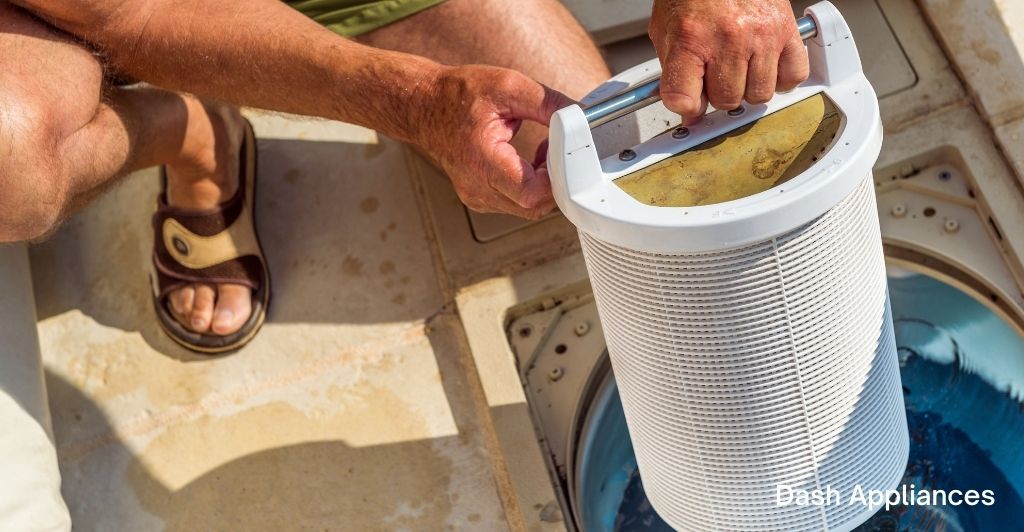Ultrafiltration is a process of water filtration that uses the standard water pressure of your home to make the water flow through a semipermeable membrane. Doing so ensures the removal of unwanted particles.
The process of reverse osmosis removes minerals present in water along with other contaminants. However, ultrafiltration retains all such vital minerals and eliminates everything else.
In this article, we are going to talk about ultrafiltration, how it works, its benefits, and all the other necessary details revolving around the process. Let’s get started!
What is Ultrafiltration?
UF is an efficient filtration system that uses a membrane to get rid of unwanted particles. The process is similar to reverse osmosis as it uses hydrostatic pressure to make the water flow through a membrane.
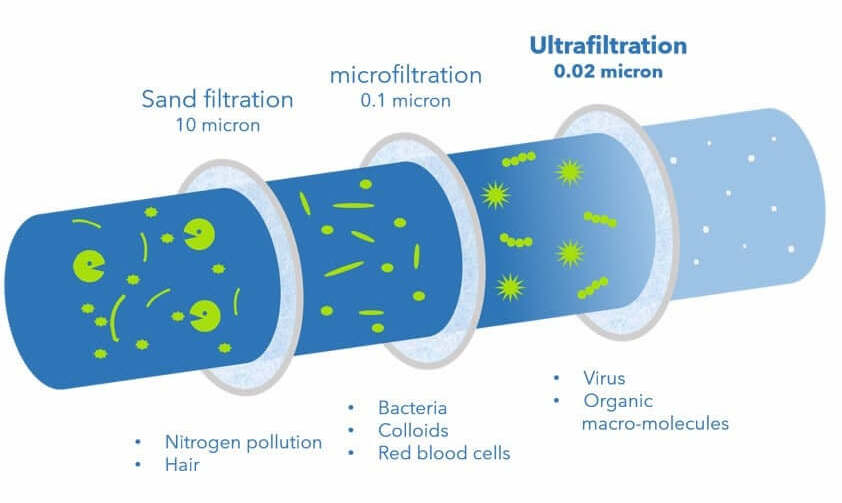
The ultrafiltration membrane’s pore size is 103 to 106 daltons, and it creates a barrier to ensure that all the viruses, bacteria, endotoxins, pathogens, and other unwanted particles stay away.
UF removes all sorts of colloidal particles present in the water and also some largely dissolved contaminants. The membrane’s pore size is basically responsible for telling the size of the pollutants removed by it.
This process also removes turbidity from the water.
How Does Ultrafiltration Work?
Ultrafiltration is a process of filtering water that removes harmful particles, bacteria, and viruses from the water, further making it clean and fresh for consumption.
In this process, the water is forced to pass through a membrane of .02 micron. This membrane allows only clean water and minerals to pass through it.
Ultrafiltration vs. Reverse Osmosis
Most UF systems use a hollow fiber membrane to filter the water properly. However, ultrafiltration systems don’t remove TDS, fluoride, or salts present in water.
Talking about reverse osmosis, it is the most efficient and effective water filtration process as it extensively filters water using its membrane with the smallest pore size. However, reverse osmosis isn’t always a preferred method or necessity.
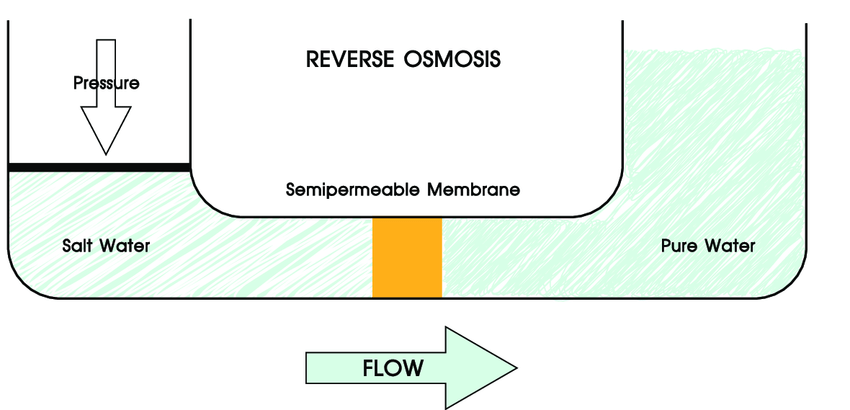
Reverse osmosis systems require a booster pump for a good water flow, whereas an ultrafiltration system works even on low water pressure.
Ultrafiltration vs Microfiltration & Nanofiltration
What distinguishes these four methods of filtering water- ultrafiltration, nanofiltration, microfiltration, and reverse osmosis is the size of their membranes. The method you need to go with will be determined by your requirements in terms of the quality of water.
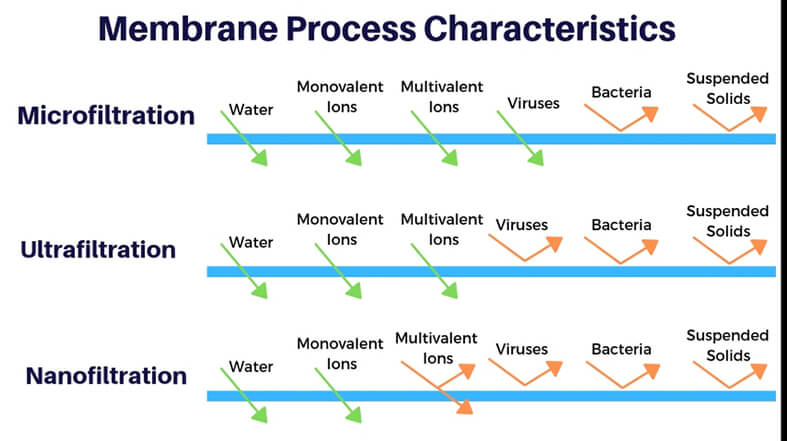
Ultrafiltration is usually used by those who want unwanted contaminants to be eliminated from their water, but they want it to have all the necessary minerals. People may also use ultrafiltration because it doesn’t waste a lot of water.
What Does Ultrafiltration Remove?
The membrane of ultrafiltration is so thin and fine that it has the capability of getting rid of particles that are 5000 times tinier than your hair. It successfully removes 90-100% of such contaminants.
Furthermore, certain organics cannot be reduced by UF. In that case, a carbon block pre-filter can be attached to the ultrafiltration system to get rid of cysts, metallic trace elements, lead, chlorine taste, volatile organic compounds, and odor. The life of an ultrafiltration membrane is two years.
Benefits of Ultrafiltration
Here are the many benefits of ultrafiltration…
- It does not require chemicals to remove contaminants from water.
- The system of UF works at very low pressure.
- It effectively removes viruses and bacteria.
- The process is environmentally friendly.
- The process keeps all the vital minerals in the water.
- Provides good quality water for consumption.
- Simple automation.
- Doesn’t create waste water.
- It works quickly and easily.
What Main Contaminants Does Ultrafiltration Remove?
Ultrafiltration removes the following contaminants:
- Viruses
- Smog
- Silt
- Plastics
- Silica
- Proteins
- Endotoxins
- Bacteria
Ultrafiltration for Homes
Earlier, ultrafiltration was only used by the city’s water plants and hospitals. However, the process has gained popularity with time, and it is now also used as an under-sink filter.
The use of ultrafiltration systems can make your water taste good and provide you with clean drinking water at all times.
Maintenance of UF Membrane
The system of ultrafiltration comes with a very fine membrane. This membrane requires appropriate maintenance for working efficiently.
Now, the process of cleaning that you need to adapt will depend on your usage. It will depend on whether you’ll be using the process of ultrafiltration to get rid of inorganic components or organic components, or both.
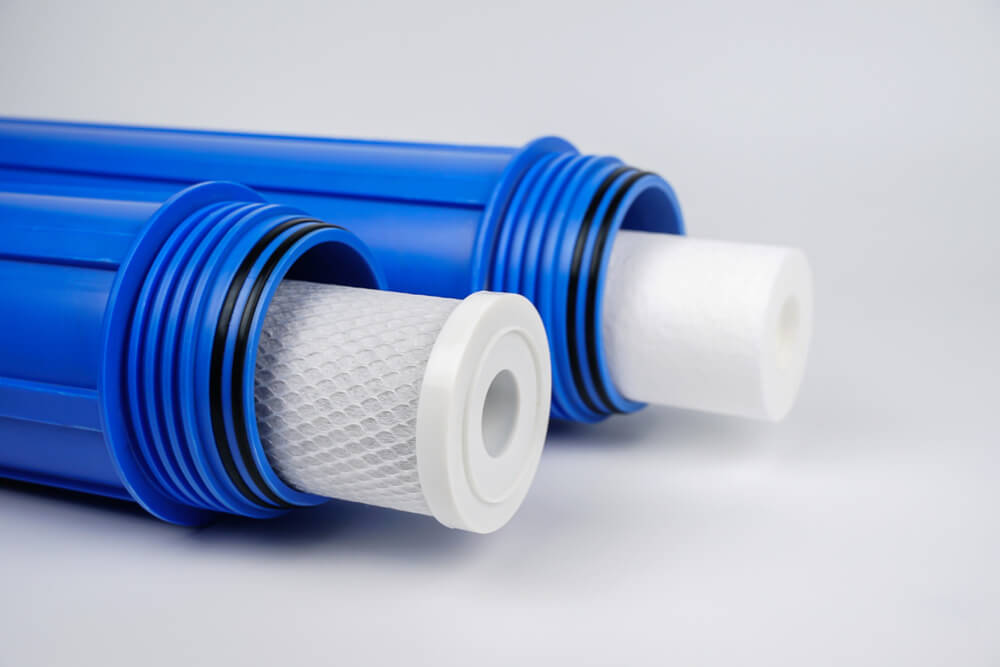
To remove the organic contaminants, you need to make use of a low foam alkaline detergent. You have to use it at 0.6-1 percent for 40-60 minutes at max.
To remove the inorganic contaminants, you need to make use of citric acid. You have to use it at 3%, which is the maximum concentration. Other acids that can be used to clean the membranes are as follows:
- Oxalic acid.
- Hydrochloric acid.
- Nitric acid.
- Sulfuric acid.
Final Thoughts
In this article, we discussed the process of ultrafiltration in detail, and we also discussed its benefits, maintenance, and other essential factors. We need water to survive.
We use water for several everyday chores, and hence, we need to ensure that we consume clean and healthy water. It becomes a necessity to get rid of all the contaminants present in water.
These water filtration systems work so that they provide us with fresh drinking water for consumption.
FAQs about Ultrafiltration
What role does ultrafiltration play in terms of removing unwanted particles from water?
Ultrafiltration gets rid of viruses, protozoa, and bacteria present in water. Nanofiltration makes sure that the water doesn’t contain any microbes and natural minerals & organic matter that contribute to the hardness of the water.
What materials are used in the process of ultrafiltration?
Polymer materials such as polylactic acid, polypropylene, cellulose acetate, and polysulfone are mainly used by UF membranes. For high-temperature applications, ceramic membranes are put to use.
Which one is better, Microfiltration or Ultrafiltration?
In addition to smog, endotoxins, fumes, plastics, proteins, silica, and viruses, ultrafiltration holds the capability of removing everything that microfiltration can. A point to be noted is that microfiltration requires slightly less pressure compared to UF. Ultrafiltration proves to be helpful in treating wastewater.
